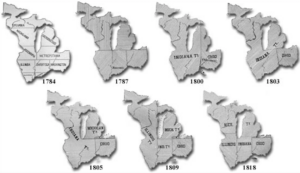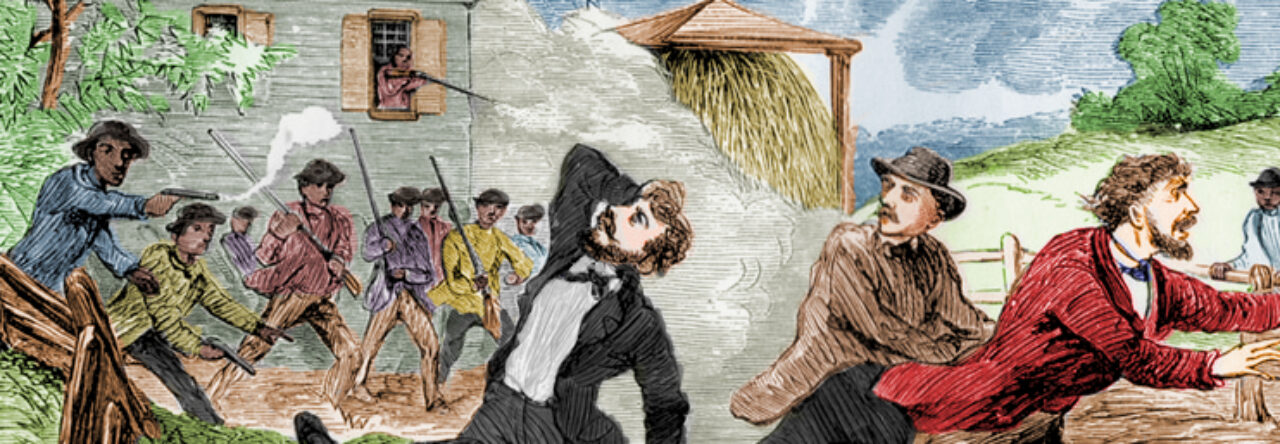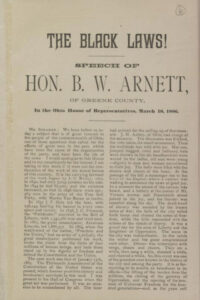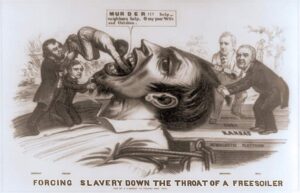Citation
Majority opinion by Chief Justice Roger Taney in Scott v. Sanford, March 6, 1857, FULL TEXT via National Archives
Excerpt
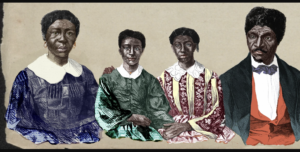
Scott family (Colorized by House Divided Project)
In the opinion of the court, the legislation and histories of the times, and the language used in the Declaration of Independence, show, that neither the class of persons who had been imported as slaves, nor their descendants, whether they had become free or not, were then acknowledged as a part of the people, nor intended to be included in the general words used in that memorable instrument.
It is difficult at this day to realize the state of public opinion in relation to that unfortunate race, which prevailed in the civilized and enlightened portions of the world at the time of the Declaration of Independence, and when the Constitution of the United States was framed and adopted. But the public history of every European nation displays it in a manner too plain to be mistaken.
They had for more than a century before been regarded as beings of an inferior order, and altogether unfit to associate with the white race, either in social or political relations; and so far inferior, that they had no rights which the white man was bound to respect; and that the negro might justly and lawfully be reduced to slavery for his benefit. He was bought and sold, and treated as an ordinary article of merchandise and traffic, whenever a profit could be made by it. This opinion was at that time fixed and universal in the civilized portion of the white race. It was regarded as an axiom in morals as well as in politics, which no one thought of disputing, or supposed to be open to dispute; and men in every grade and position in society daily and habitually acted upon it in their private pursuits, as well as in matters of public concern; without doubting for a moment the correctness of this opinion.
And in no nation was this opinion here firmly fixed or more uniformly acted upon than by the English Government and English people. They not only seized them on the coast of Africa, and sold them or held them in slavery for their own use; but they took them as ordinary articles of merchandise to every country where they could make a profit on them, and were far more extensively engaged in this commerce, than any other nation in the world.
The opinion thus entertained and acted upon in England was naturally impressed upon the colonies they founded on this side of the Atlantic. And, accordingly, a negro of the African race was regarded by them as an article of property, and held, and bought and sold as such, in every one of the thirteen colonies which united in the Declaration of Independence, and afterwards formed the Constitution of the United States. The slaves were more or less numerous in the different colonies, as slave labor was found more or less profitable. But no one seems to have doubted the correctness of the prevailing opinion of the time.
Related Sources
- Washington (DC) National Intelligencer, “Decision in a Slave Case,” April 8, 1852
- Boston (MA) Investigator, “A Slavery Decision Reversed,” May 12, 1852
- Louisville (KY) Journal, “The Case of Dred Scott,” December 27, 1856
- New York Times, “The Dred Scott Case,” January 5, 1857
- Robert Cooper Grier to James Buchanan, February 23, 1857
- New York Times, “Slavery in the Territories,” March 7, 1857
- Boston (MA) Herald, “The Dred Scott Decision,” March 7, 1857
- New York Herald, “The Decision in the Dred Scott,” March 9, 1857
- New York Times, “From Washington,” March 9, 1857
- Abraham Lincoln, Fragment of a Speech, circa December 28, 1857
- Lyman Trumbull to Abraham Lincoln, January 3, 1858
Related Essays
